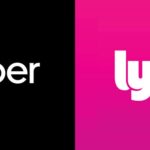Thankfully, it’s not a regular occurrence, but from time to time, accidents happen. Suppose you’re new to driving Uber or you’re considering becoming an Uber driver to earn some extra money on the side. In that case, you probably have a few questions regarding your auto insurance policy.
Will driving for Uber raise your insurance? Driving for Uber will not raise your existing auto insurance premium. When you’re driving for Uber, you’re covered by Uber’s driver insurance policy. You do not pay for Uber’s driver insurance policy since it’s charged to the customer.

That’s right, one of the benefits of driving for Uber is that if something happens while you’re driving, then there’s a high chance that Uber will cover the costs. This extra driver insurance is charged to the customer, so you won’t have to pay any extra for it, either. I’m no insurance expert, but I am an Uber driver. In this post, I’m going to explain how Uber’s policy works and whether or not it will raise your existing policy costs.
What Kind Of Insurance Do I Need For Uber?
Uber is a great way to make money on the side, but it’s important that you’re covered.
What kind of insurance do you need for Uber? To drive for Uber, you need just State’s minimum required insurance. You do not need any additional or special insurance to drive for Uber. While you’re logged onto the Uber app, Uber maintains the automobile liability insurance on your behalf.
This article will give you the rundown on what type of coverage Uber drivers typically have and how much it costs. In addition, we’ll tell you how to get more coverage if needed.
Do I Have To Inform My Insurance Company That I Drive For Uber?
Usually, most insurance companies will never directly ask if you work for a ridesharing company like Uber or Lyft. Since ridesharing companies have their own form of auto insurance coverage that they provide their drivers while they’re clocked-in, most auto insurance companies aren’t concerned whether or not you’re using your car for work.
However, if you’re signing up for a new auto policy (or renewing an existing policy), then your insurance agent may ask you how many miles you drive your car each year. Statistically, drivers who spend more time in their vehicles have a higher likelihood of getting in an accident, so that’s why they ask this question.
For example, if you drive 20,000 miles a year (compared to the average 12,000-miles-per-year driver), you’ll probably be charged an extra $5-$8 per month on your insurance premiums.
As an Uber driver, you will most definitely be putting more miles on your car (unless you’re just a Sunday morning part-timer). While many Uber drivers don’t report the extra mileage to their insurer, it’s the right thing to do if you want to avoid any problems.
That being said, though, your insurance agent probably won’t raise your premium immediately. When it comes time to renew your policy, though, there is a chance that they’ll add an extra $5 or so to your monthly payment. Most people don’t even recognize the minimal difference, but it’s always good to know what you’re being charged for.
How Uber Driver Insurance Works
If you’re applying to be an Uber driver, you will need to have pre-existing auto coverage on your vehicle. They’re not usually concerned with the type of auto insurance that you have, as long as you have the state-mandated minimum insurance. They just want to make sure that their drivers are following the local state laws.
All Uber drivers (part-time and full-time) are covered by Uber’s insurance as long as they’re clocked-in and working with the Uber app on their phones. This means that if something bad happens to you while you’re on the job, there’s a good chance that Uber’s liability or comprehensive policy will cover some or all costs!
Understanding The Three Periods
Uber’s insurance policy defines three separate periods of time in which the driver may be clocked in. Depending on which period you’re in when the incident occurs, though, you may receive more coverage or less coverage.
This is why it’s important to have your own separate policy outside of Uber’s. Whatever Uber’s limited policy doesn’t cover, your insurance company will have to cover instead. Below are the three periods and what Uber covers depending on which period you were in when the incident claim occurred.
Period 1: Waiting For Passenger
Period 1 is when you’ve just clocked in. You don’t have a passenger yet, you haven’t responded to any hails/requests, and you’re just sitting in your car or driving around. During this period, you’ll only be covered by Uber for liability claims. You will not be covered for comprehensive or collision.
This means that if an accident occurs, Uber will pay for the other driver (up to a certain amount), but you and your pre-existing insurance will have to cover damages to yourself and your vehicle.
Period 2: En-Route To Passenger
Period 2 is when you’ve responded to a hail, and you’re on your way to pick up the passenger. During this period, your coverage is significantly increased. You’ll be covered for up to $1 million in liability claims, receive collision coverage and comprehensive insurance coverage.
This means that whether you’re found to be at-fault and crash into another car or whether you’re the victim, you’re covered by your collision and liability policy. Comprehensive coverage takes care of any other random events that might occur while driving, such as:
- You hit a deer that runs out into the street.
- A rock or tree branch falls on your car while passing a cliff.
- You sustain hail damage.
- Your engine explodes or catches fire.
- Your tire explodes.
- … and other “acts of God.”
Period 3: Driving With Passenger
Period 3 coverage is activated once you pick up your passenger and they’re in the vehicle with you. Uber policy coverage for period 3 is pretty much the exact same as coverage for period 2 with one exception- your liability coverage now covers your passenger. This means that if anything happens to them, Uber will pay for their injuries and damages.
Do I Have To Pay Uber For Insurance?
The best thing about Uber’s insurance is that you don’t have to pay upfront for it. The price of the insurance is already factored into everyday ride-sharing costs, so it’s technically charged to each customer when they pay for their ride and hail a driver. Although costs may differ slightly from one state to another, you shouldn’t notice a considerable difference (even if you’re driving in Las Vegas)!
Uber’s deductible (the amount you have to pay out-of-pocket before your insurance kicks in) is also pretty fair. They have a $1,000 deductible for liability, which means you’ll pay $1,000 out of your own money before Uber’s policy takes over and pays the rest.









